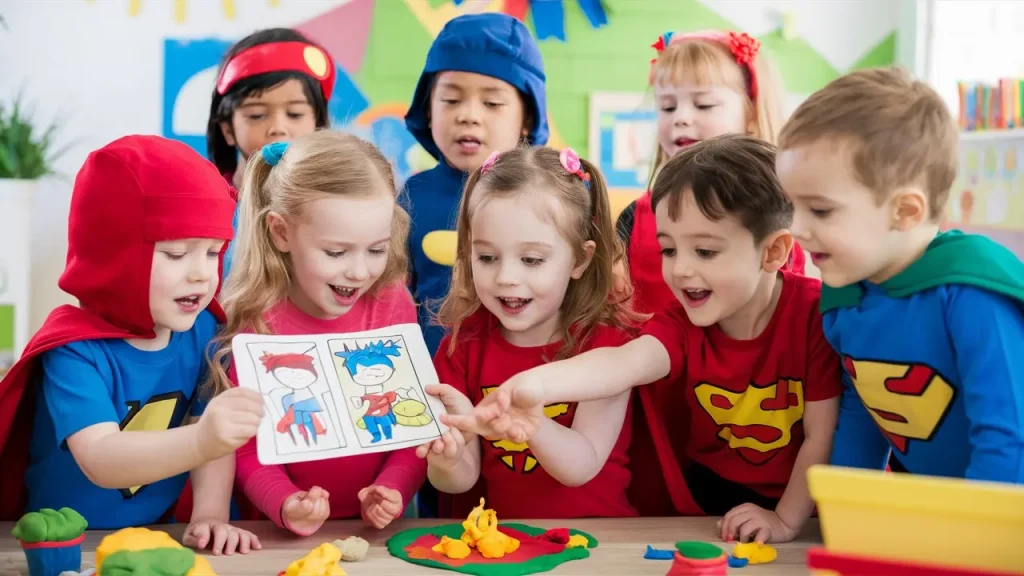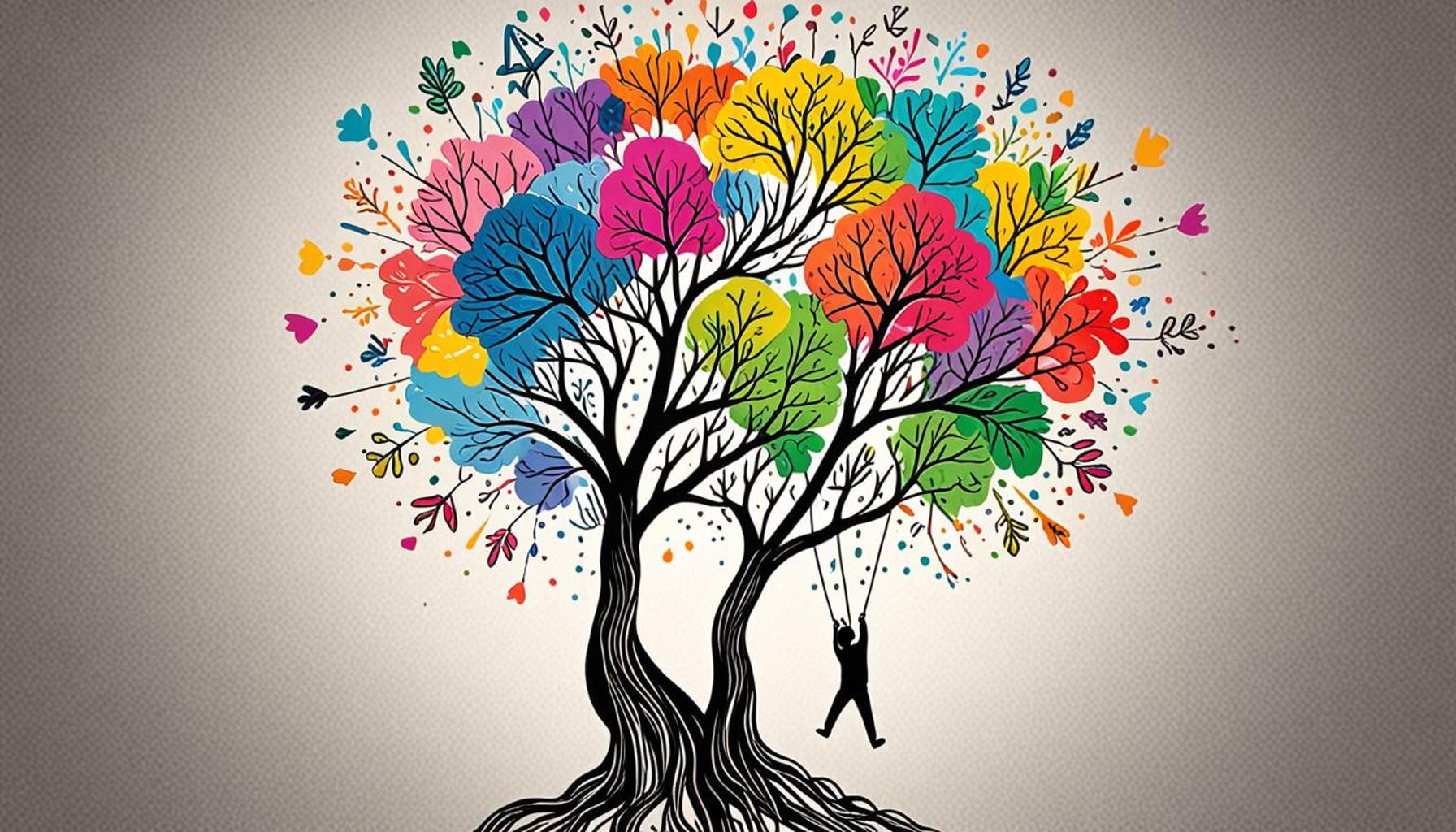The Connection Between Emotional Intelligence and Learning Techniques in Promoting a Growth Mindset

Understanding the Role of Emotional Intelligence in Learning
In today’s rapidly evolving world, the ability to adapt and grow is more crucial than ever. A growth mindset empowers individuals to embrace challenges and see failures as opportunities for learning. But what factors truly contribute to cultivating this mindset? As we probe deeper, one essential element arises: emotional intelligence (EQ).
Research shows that emotional intelligence significantly influences how we learn and adapt. It’s not simply about recognizing our emotions; it’s also about managing and leveraging them effectively for personal and academic growth. Here are some key features that demonstrate how emotional intelligence can enhance learning strategies:
- Self-awareness: Understanding one’s emotions can enhance learning engagement. For instance, a student who recognizes feelings of anxiety before an exam can implement strategies to calm themselves, thereby improving focus and performance. Self-awareness fosters a deeper connection to the learning material, as students become more attuned to their needs and learning styles.
- Self-regulation: The ability to manage one’s emotions effectively promotes resilience in facing academic challenges. In the Nigerian context, where educational resources can sometimes be limited, students who can remain composed during setbacks—like unexpected exam questions or project group conflicts—tend to navigate their studies with greater ease and determination. Their emotional regulation not only aids their performance but also sets an example for peers, creating a supportive learning environment.
- Social skills: Developing strong interpersonal skills is critical in fostering collaborative learning experiences. Effective communication and teamwork are often the cornerstones of successful group projects in Nigeria’s diverse classrooms. Students with high emotional intelligence can better understand their classmates’ views and emotions, leading to more productive discussions and collaborative problem-solving.
This connection between emotional intelligence and educational strategies holds particular significance in Nigeria, where students and educators face various emotional and psychological challenges. Issues such as large class sizes, socio-economic barriers, and intermittent access to resources can negatively affect emotional health. By focusing on enhancing emotional intelligence, both students and educators can develop coping strategies that help them effectively navigate these hurdles while also promoting a positive learning environment.
As we delve deeper into this topic, we will uncover how mastering emotional intelligence can transform learning techniques. This transformation fosters a profound growth mindset, encouraging individuals to not only strive for academic excellence but also to embrace the journey of continuous self-improvement. Join us on this exploration of the synergy between emotional intelligence and learning, and discover how these critical elements can intertwine to enrich educational experiences across the nation.
YOU MAY ALSO LIKE: Read read another article

The Impact of Emotional Intelligence on Learning Techniques
As we strive for a supportive educational framework in Nigeria, understanding the connection between emotional intelligence and effective learning techniques becomes paramount. Students imbued with a strong sense of emotional intelligence are often more adept at navigating the complexities of their academic environments, leading to enhanced learning outcomes and a healthier growth mindset.
One primary avenue through which emotional intelligence influences learning is through its innate ability to enhance motivation. When students can identify their emotional triggers—such as excitement for a new topic or frustration with challenging material—they can harness these feelings to propel their engagement. This understanding can fuel a passion for learning, encouraging students to tackle difficult subjects head-on rather than retreating into apathy. In a Nigerian classroom, where the curriculum is often robust and demanding, recognizing emotional cues becomes crucial for maintaining enthusiasm.
- Positive reinforcement: When educators incorporate emotional insights into their teaching methodologies, they foster an environment that emphasizes encouragement and motivation. Celebrating small achievements, for example, helps build confidence in students, demonstrating that growth is not only possible but expected. This approach aligns with the principles of a growth mindset, whereby students learn to appreciate effort and progress over mere results.
- Adaptive learning strategies: Emotional intelligence allows students to adjust their study habits based on their emotional states. A learner who acknowledges their struggle with a concept can seek different resources or adopt new strategies that align with their emotional readiness. This adaptability is particularly crucial in a diverse education landscape, as it empowers students to find what works best for them, rather than conforming to a one-size-fits-all approach.
- Resilience building: The challenges faced in educational settings can be overwhelming, especially in a country like Nigeria where systemic issues may complicate learning. Students with high emotional intelligence are typically more resilient, as they approach setbacks as learning experiences. This resilience fosters a growth mindset, encouraging students to persist through difficulties and ultimately leading to greater achievement.
It is critical to highlight that the integration of emotional intelligence into learning techniques does not merely benefit students. Educators who embrace these principles also enhance their teaching practices and classroom dynamics. Developing strong emotional competencies can lead to more effective communication with students, fostering a nurturing environment that promotes both academic and emotional growth.
In navigating the intersection of emotional intelligence and learning techniques, it becomes evident that fostering a growth mindset in the Nigerian educational landscape requires a comprehensive approach. By embracing the nuances of emotional intelligence, students and educators alike can create a resilient, motivated, and adaptive learning community.
| Emotional Intelligence | Learning Techniques |
|---|---|
| Self-Awareness | Reflective Learning |
| Empathy | Collaborative Techniques |
| Emotional Regulation | Personalized Learning |
In the realm of fostering a growth mindset, the interplay between emotional intelligence and effective learning techniques plays a crucial role. Understanding one’s emotions enhances self-awareness, allowing learners to recognize their strengths and areas for improvement. This reflective learning can aid individuals in tailoring their approaches to challenges and discover new techniques for success. For instance, using reflective journal prompts encourages students to explore their emotional responses while learning, which can unveil deeper insights into their thought processes.Moreover, a high level of empathy fosters collaboration among peers. Learning techniques that encourage group discussions, such as collaborative learning, allow students to communicate their emotional state and support each other’s goals. This camaraderie creates a safe environment for risk-taking, essential for embracing a growth mindset.Furthermore, the ability to exercise emotional regulation contributes to how learners adapt to personalized learning experiences. Providing tailored resources that resonate with individual emotional landscapes can significantly enhance retention and understanding. For example, integrating techniques that account for emotional triggers empowers students to manage stress during challenging tasks, further solidifying their growth-oriented attitudes.
SEE ALSO: Click here to read another article
Leveraging Emotional Intelligence in Classroom Learning Techniques
Delving deeper into the landscape of emotional intelligence reveals its transformative potential in implementing innovative learning techniques. In a Nigerian context, where educational methodologies often rely on traditional approaches, integrating emotional intelligence offers an opportunity for redefining how students engage with learning materials and interact in classroom settings.
One profound method is the incorporation of collaborative learning. Emotional intelligence empowers students to work effectively in teams, recognizing each other’s strengths and emotional needs. Through group projects or peer tutoring, students cultivate empathy and communication skills, as they learn to navigate differing perspectives. For instance, a student passionate about mathematics may assist a peer struggling with the subject, fostering a sense of community and shared achievement. This not only promotes academic growth but also reinforces the idea that collective effort contributes to individual success, a fundamental principle of a growth mindset.
- Mindfulness practices: Incorporating mindfulness techniques into daily lessons has gained traction in many educational institutions. These practices—such as guided reflections or emotional check-ins—can help students cultivate awareness of their emotions, leading to better stress management and enhanced focus on learning tasks. In a Nigerian classroom, where pressures may arise from performance and external expectations, mindfulness can provide a much-needed relief. This emotional clarity supports a growth mindset by encouraging students to view challenges as growth opportunities instead of insurmountable obstacles.
- Goal setting and self-regulation: Teaching students the art of effective goal-setting, aligned with emotional intelligence, enables them to regulate their learning processes. This involves breaking down complex assignments into achievable milestones, which can alleviate feelings of overwhelm. For example, students might set daily targets for reading or project completion, and reflect on their emotional responses to progress or setbacks. Such practices not only enhance learning outcomes but instill a sense of agency essential for developing a robust growth mindset.
- Emotional storytelling: Utilizing emotional storytelling in educational content can significantly enhance student engagement and retention. By connecting learning to relatable experiences or historical narratives that evoke emotions, learners can better internalize concepts. In Nigeria’s rich tapestry of cultures and stories, educators can leverage local narratives to illustrate educational themes. This connection forms a bridge between emotions and academic content, making learning more relevant and impactful.
Furthermore, fostering positive teacher-student relationships is crucial in a system enriched by emotional intelligence. When educators engage with empathy and understanding, they build trust and encourage students to express their challenges openly. In a Nigerian educational framework, where hierarchical structures may inhibit communication, breaking down these barriers can create a more inclusive environment conducive to learning and personal development.
As we explore the rich relationship between emotional intelligence and learning techniques, it’s clear that the synergy promotes not just academic advancement but holistic development. By equipping students with emotional tools and adaptive strategies, the emphasis shifts from merely passing exams to cultivating lifelong learners with resilient, growth-oriented mindsets.
YOU MAY ALSO LIKE: Read read another article
Conclusion
In conclusion, the vital connection between emotional intelligence and learning techniques creates a powerful avenue for fostering a growth mindset among students, particularly in diverse educational settings like Nigeria. As traditional teaching methods are increasingly challenged by the complexities of modern learning environments, integrating emotional intelligence provides a refreshing shift that emphasizes personal and academic growth over rote memorization and compliance. By implementing strategies such as collaborative learning, mindfulness practices, and the infusion of emotional storytelling, educators can create an atmosphere that nurtures empathy, resilience, and open communication.
The impact of these practices extends beyond classroom walls; they equip students with essential life skills that enhance their ability to tackle challenges head-on. By recognizing and regulating emotions, and setting achievable goals, learners are encouraged to view setbacks not as failures but as stepping stones to success. This reflective approach allows them to cultivate a mindset that not only supports their educational pursuits but also prepares them for the uncertainties of life beyond academia.
The path forward for Nigerian education lies in embracing these interconnected methodologies. It is imperative for educational stakeholders to prioritize the development of emotional intelligence within teaching frameworks, thus empowering a new generation of students. As our educational landscape evolves, fostering strong teacher-student relationships through empathy and trust will be paramount. Ultimately, by cultivating both emotional intelligence and innovative learning techniques, we can unlock the full potential of students, shaping them into lifelong learners ready to contribute positively to society.


